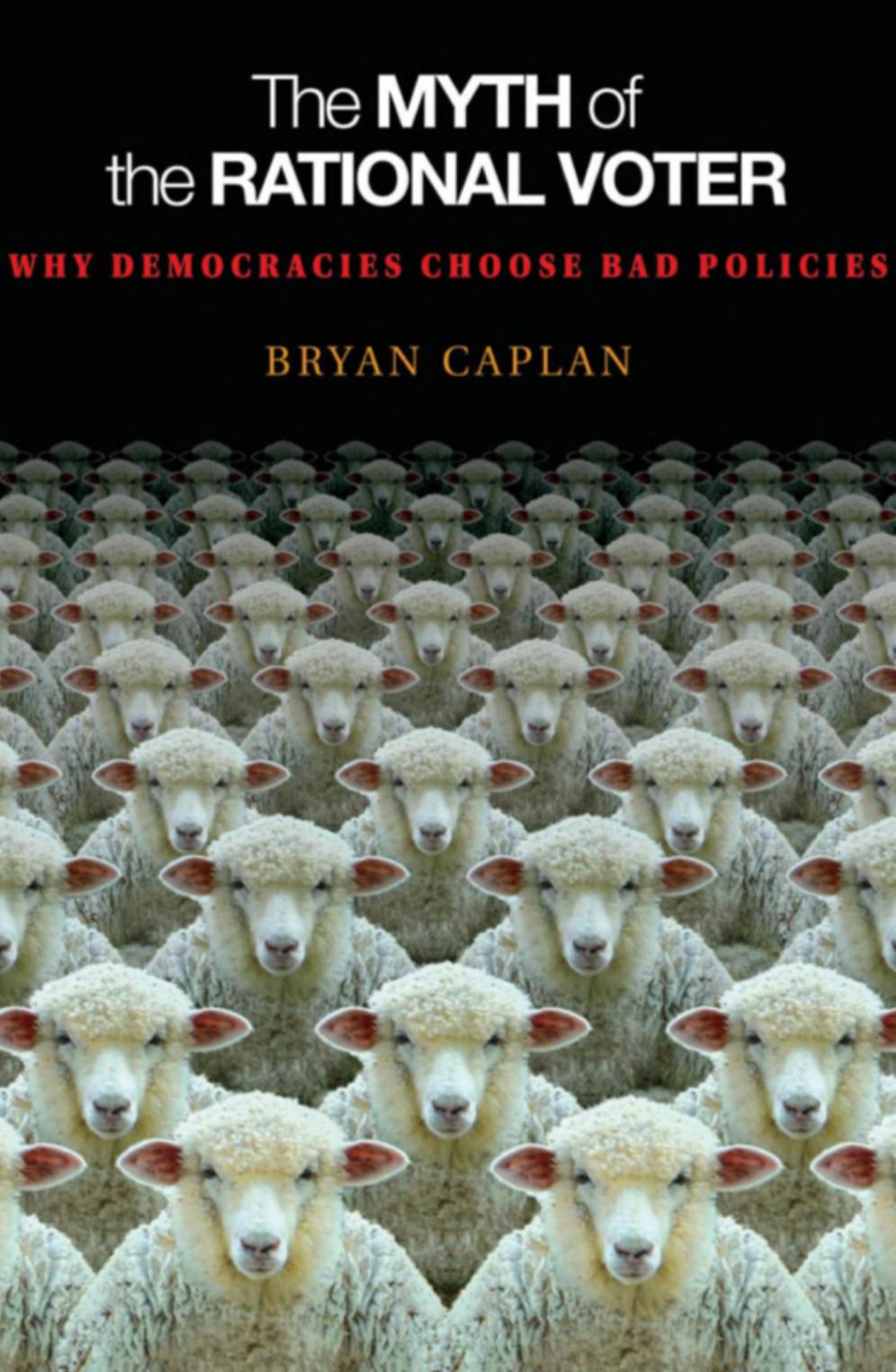The Myth of the Rational Voter: Why Democracies Choose Bad Policies by Bryan Caplan

Author:Bryan Caplan [Caplan, Bryan]
Language: eng
Format: epub, pdf
Tags: Political Ideologies, Democracy, Political Process, American Government, Elections, General, pol_guide, Political Science, Economic Policy, Public Policy
ISBN: 9780691138732
Google: jLHzchx0deEC
Amazon: 0691138737
Publisher: Princeton University Press
Published: 2008-08-04T05:19:03+00:00
Figure 6.2 Electoral Impact of Irrationality of Otherwise Identical Voters with Heterogeneous Beliefs
Top: Distribution of Beliefs on Welfare-Maximizing Level of Protection
Bottom: Distribution of Most-Preferred Platforms on Protection
A Necessary Digression on the Self-Interested Voter Hypothesis
The link between irrationality and policy is plain in highly stylized thought experiments. But relaxing more assumptions seems to make matters painfully intractable. If voters have different endowments, then many may objectively benefit from socially harmful policies. Inequality of wealth is the simplest reason: Even if redistribution is an awfully leaky bucket, it might still enrich the majority.19 But inequality is only the beginning. The owner of a textile mill may be just as rich as the owner of a clothing store, but tariffs affect their interests oppositely. With so much complexity, perhaps the people who overestimate the social benefits of protection really do lose out because of foreign competition. They might be protectionists because they correctly judge its effect on their personal well-being, not because they overestimate its effect on national well-being.
If people vote in a narrowly selfish way, there is no easy way to untangle the effect of misconceptions on policy. The problem seems insoluble. Fortunately, the problem does not need to be solved, because, contrary to both economists and the man in the street, voters are not selfishly motivated.20 The self-interested voter hypothesis—or SIVH—is false. In the political arena, voters focus primarily on national well-being, not personal well-being. That makes it straightforward to move from systematic errors about the causes of national well-being to policies that are—from the standpoint of national well-being—counter-productive.
The SIVH is so embedded in both economics and popular culture that it has to be debunked before I can go on. Many economists find it peculiar even to speak of self-interested voting as a “hypothesis” in need of empirical support.21 Political cynicism drives the general public to the same conclusion: If you still haven’t noticed that people vote their pocketbooks, grow up!
Since economists and the public rarely agree on anything of substance, their shared sympathy for the SIVH has long made me uneasy. In graduate school, I rarely came across hard evidence one way or the other. Many economists took the SIVH for granted, but few bothered to defend it.22 After completing my doctorate I read more outside my discipline, and discovered that political scientists have subjected the SIVH to extensive and diverse empirical tests.23 Their results are impressively uniform: The SIVH fails.
Start with the easiest case: partisan identification.24 Both economists and the public almost automatically accept the view that poor people are liberal Democrats and rich people are conservative Republicans. The data paint a quite different picture. At least in the United States, there is only a flimsy connection between individuals’ incomes and their ideology or party. The sign fits the stereotype: As your income rises, you are more likely to be conservative and Republican. But the effect is small, and shrinks further after controlling for race. A black millionaire is more likely to be a Democrat than a white janitor.25 The Republicans might be the party for the rich, but they are not the party of the rich.
Download
The Myth of the Rational Voter: Why Democracies Choose Bad Policies by Bryan Caplan.pdf
This site does not store any files on its server. We only index and link to content provided by other sites. Please contact the content providers to delete copyright contents if any and email us, we'll remove relevant links or contents immediately.
The Secret History by Donna Tartt(16611)
The Social Justice Warrior Handbook by Lisa De Pasquale(11486)
Thirteen Reasons Why by Jay Asher(7783)
This Is How You Lose Her by Junot Diaz(5754)
Weapons of Math Destruction by Cathy O'Neil(5032)
Zero to One by Peter Thiel(4818)
The Myth of the Strong Leader by Archie Brown(4786)
Promise Me, Dad by Joe Biden(4441)
Stone's Rules by Roger Stone(4413)
Beartown by Fredrik Backman(4405)
How Democracies Die by Steven Levitsky & Daniel Ziblatt(4393)
The Fire Next Time by James Baldwin(4338)
100 Deadly Skills by Clint Emerson(4072)
A Higher Loyalty: Truth, Lies, and Leadership by James Comey(4027)
Rise and Kill First by Ronen Bergman(4009)
The David Icke Guide to the Global Conspiracy (and how to end it) by David Icke(3876)
The Farm by Tom Rob Smith(3870)
Secrecy World by Jake Bernstein(3774)
The Doomsday Machine by Daniel Ellsberg(3726)
